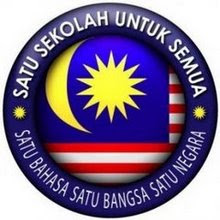Newsline: RADIO SINGAPORE INTERNATIONAL
13.5.2008 – 2005 HRS
Malaysia’s opposition leader Anwar Ibrahim has predicted that there will be a change of government before Malaysia Day on September 16th. According to Mr. Anwar, support for the Pakatan Rakyat opposition alliance is increasing. However, he declined to provide details on the number of politicians from the ruling Barisan Nasional who switched allegiance. Officials from the United Malays National Organisation or UMNO have admitted that nearly 17 BN Members of Parliament from states such as Sabah and Sarawak could defect to the opposition.
So will Anwar's predictions come true? Shereena Sajeed spoke to Dr. Mavis Puthucheary, Associate Senior Fellow at the Institute of Malaysian and International Studies to find out.
Mavis Puthucheary: “Well I would not say that it is an untruth but there is, I think, considerable negotiations taking place, particularly between BN Members of Parliament in Sarawak and Sabah and Pakatan Rakyat.”
13.5.2008 – 2005 HRS
Malaysia’s opposition leader Anwar Ibrahim has predicted that there will be a change of government before Malaysia Day on September 16th. According to Mr. Anwar, support for the Pakatan Rakyat opposition alliance is increasing. However, he declined to provide details on the number of politicians from the ruling Barisan Nasional who switched allegiance. Officials from the United Malays National Organisation or UMNO have admitted that nearly 17 BN Members of Parliament from states such as Sabah and Sarawak could defect to the opposition.
So will Anwar's predictions come true? Shereena Sajeed spoke to Dr. Mavis Puthucheary, Associate Senior Fellow at the Institute of Malaysian and International Studies to find out.
Mavis Puthucheary: “Well I would not say that it is an untruth but there is, I think, considerable negotiations taking place, particularly between BN Members of Parliament in Sarawak and Sabah and Pakatan Rakyat.”
Shereena Sajeed: “As you mentioned also, it’s mainly members from the East Malaysian states like Sabah and Sarawak who could defect and switch sides?”
Mavis Puthucheary: “Well in the case of Sabah and Sarawak, they really have always felt that they have been sidelined and many of the MPs who left the Sabah-based parties like USNO (United Sabah National Organisation) and joined UMNO feel that they are second-class UMNO members within the party so they are using the opportunity now that they have some political leverage to try to improve their position within the BN.”
Shereena Sajeed: “In your opinion, what is the likelihood of a change of government actually taking place before mid-September, as Anwar predicts?”
Mavis Puthucheary: “I definitely don’t think it will come about for the simple reason that even though Sabah MPs are more in line to switch parties, I think within Sarawak, the PPP led by a type, is not likely to want to join the opposition. So they are talking now about 54 MPs crossing over but I do not think that that would actually take place but I do think that there is a strong possibility of some MPs from BN particularly in Sabah, switching sides.”
Shereena Sajeed: “How successful is Anwar’s game-plan in terms of swaying supporters from within UMNO to switch sides and support the Pakatan Rakyat?”
Mavis Puthucheary: “Well I think the whole game-plan is once there is some indication that the BN is likely to not be able to form the government in September that some people would want to, well just to leave the sinking ship and jump at this point in time. This is like a game of poker.”
Shereena Sajeed: “So what do you predict, in the next three months or so, how do you think this whole situation will pan out?”
Mavis Puthucheary: “Well, it really depends how Abdullah Badawi and the UMNO Supreme Council will respond to the veiled threats that are coming from Sabah and I think Sarawak. Others parties within the BN, not the PPP, but the other parties, particularly the non-Muslim Bumiputeras in Sarawak are also taking the wait-and-see attitude. So it really depends on how the BN government responds to the demands that are now first coming from Sabah but I think may also come from Sarawak at a later date.”
Shereena Sajeed: “What is still unconfirmed is the wat in which these defections should be carried out. According to Anwar’s supporters, the defections should be in a staggered manner. Do you think this is the better route for Anwar to take or could this act to his disadvantage?”
Mavis Puthucheary: “I do think that there are two possibilities; either individuals would leave the BN and the component party within the BN and join the Pakatan Rakyat or there will be a whole party switching sides like Party Bersatu Rakyat Sabah, all the members within the MPs as well as the whole party moving to Pakatan Rakyat. So I don’t know how exactly it will take place. There is some talk also, that these MPs and their parties will leave the BN coalition and first become part of the opposition in Sabah and from that position, negotiate with the Pakatan Rakyat. So it could take place in two stages or it could take place just straight away.”
The Warta Citra Cafe Towkay said: All this talk perhaps, nothing more than hype by the Anuar camp in order to boost their morale. Work harder, we're almost there type of moral boosting. Opinions from across the straits were mere opinion. Its the type of talk we often hear at this cafe. Really, how could one draw conclusions by just talking to few people and confidently predict things going to happen.





